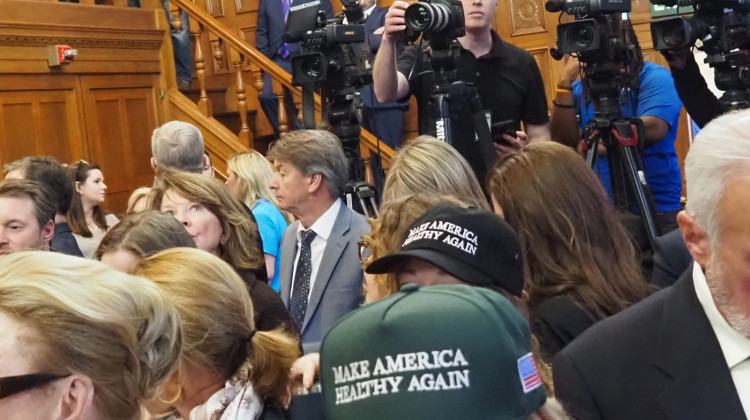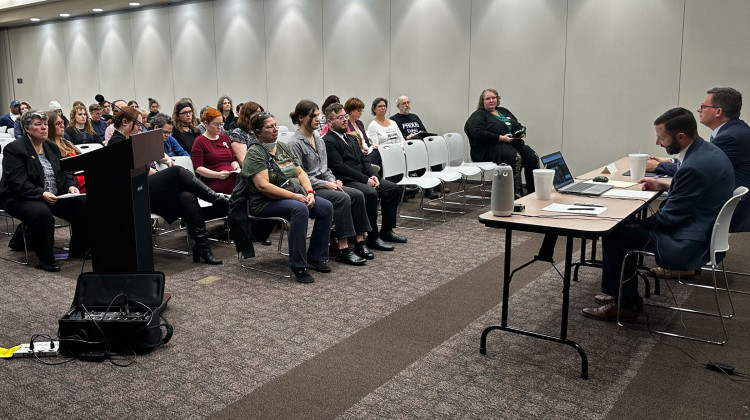
Indiana's red flag law has been cited recently as a model for potential legislation to curb mass shootings nationwide.
FILEAn Indiana firearm seizure law has led to fewer suicides around the state during its first decade on the books, according to a new study from researchers at the University of Indianapolis.
Indiana’s so-called “red flag law” has been in effect since 2005, and allows police to seize a firearm from an individual should they determine that person is a threat to themselves or others. It withstood a challenge to its constitutionality in 2013, thanks to its appeal process that would see the possible return of the firearm to its legal owner.
This law has been cited recently as a model for potential legislation to curb mass shootings nationwide, but has also saved Hoosier lives in other ways.
In a study of population data from all 50 states between 1981 and 2015 published in the June 2018 issue of Psychiatric Services, Indiana’s red flag law is said to correlate with a 7.5 percent decrease in firearm suicides statewide.
The study focused on Indiana and Connecticut’s firearm seizure laws. While Connecticut’s suicide rate has been offset by different factors over 10 years, Indiana’s has gradually decreased since the enactment of the seizure law.
Clarification: This post was updated to reflect the study was done by researchers at the University of Indianapolis and published in the June 2018 issue of Psychiatric Services, a peer-reviewed journal from the American Psychiatric Association.
 DONATE
DONATE








 Support WFYI. We can't do it without you.
Support WFYI. We can't do it without you.